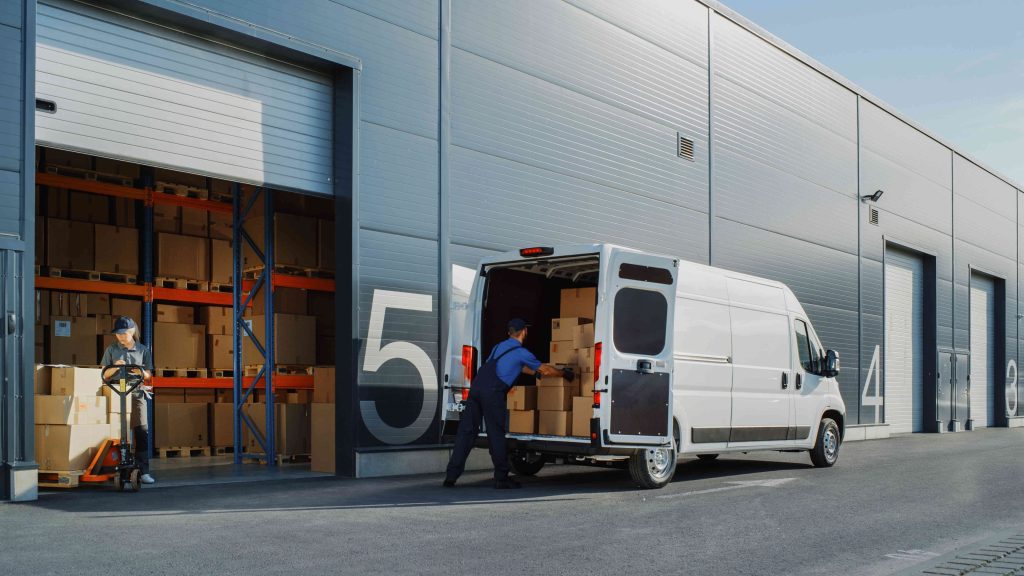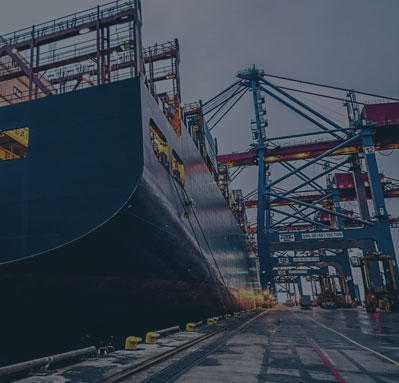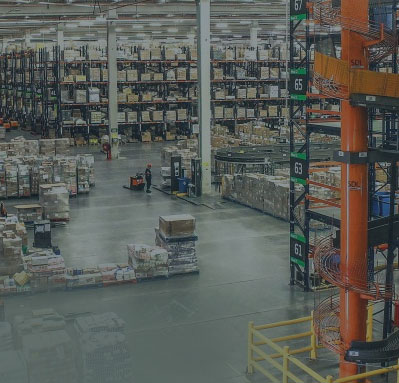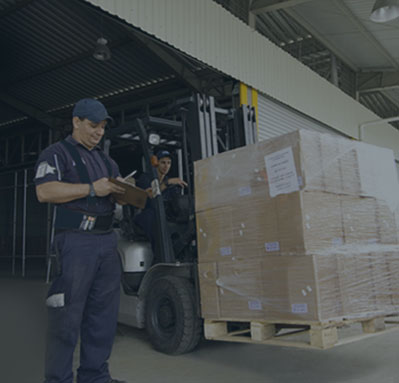In the complex world of logistics, dry van shipping stands out as one of the most popular and essential methods of freight transportation. Whether you’re a seasoned shipper or new to the logistics industry, understanding the ins and outs of dry van shipping is crucial for ensuring your cargo reaches its destination safely and efficiently. This comprehensive guide will cover everything you need to know about dry van shipping, from its definition and benefits to choosing the right service provider.
Introduction to Dry Van Shipping
Dry van shipping is a fundamental method in the logistics industry, involving the use of fully enclosed trailers to transport goods. These trailers, widely recognized as dry vans, are meticulously designed to safeguard cargo from a plethora of external factors, including adverse weather conditions, road dust, and unauthorized access, making them a reliable choice for shipping non-perishable items. Owing to their robust construction and secure environment, dry vans are the preferred method for moving a broad array of non-perishable goods — such as clothing, electronics, furniture, and other packaged commodities — over both short and extensive distances. Their ability to protect cargo not only from moisture and precipitation but also from extreme temperatures and vandalism, positions dry vans as an indispensable asset for countless businesses seeking a versatile and efficient shipping solution.
Key Features of Dry Vans
- Enclosed Structure: Dry vans provide a shielded environment, effectively protecting goods from the elements, such rain, snow, and the scorching sun, as well as offering security against theft, ensuring that items like electronics and consumer goods remain safe during transit.
- Versatility: They are exceptionally adaptable, capable of transporting a wide array of goods. From non-perishable food items that do not require refrigeration, such as canned goods and rice, to household products, electronics, textiles, and furniture, dry vans can handle a diverse range of cargo needs.
- Accessibility: Designed in standard dimensions, dry vans are engineered to align with most loading docks, facilitating easy and efficient loading and unloading processes. This universal compatibility further enhances their appeal to businesses of all scales, streamlining the logistics process from start to finish.
By offering a secure and versatile option for shipping a vast range of non-perishable items, dry van shipping stands as a cornerstone in the transportation sector, supporting the seamless flow of goods in domestic and international markets alike.

Benefits of Dry Van Shipping
Opting for dry van shipping comes with several advantages that make it an attractive option for businesses of all sizes:
Protection and Security
The enclosed structure of dry vans offers unparalleled protection against the elements and potential theft, ensuring your goods arrive in pristine condition. This level of security is vital for high-value items, reducing the risk of damage and loss during transit and providing shippers with peace of mind.
Flexibility and Versatility
Dry vans can transport a wide array of goods, including non-perishable food items, textiles, electronics, and more. This versatility makes dry van shipping a one-size-fits-all solution for many shippers. Additionally, their ability to handle palletized and non-palletized cargo adds another layer of convenience for diverse shipping requirements.
Cost-Effectiveness
Dry van shipping is often more affordable compared to other transportation methods, such as flatbed or refrigerated shipping, especially when shipping non-perishable goods over long distances. The widespread availability of dry vans also contributes to competitive pricing, allowing businesses to reduce transportation costs without compromising on service quality.
Ease of Loading and Unloading
The standard size and design of dry vans make loading and unloading straightforward, allowing for efficient dock-to-dock transportation. This efficiency is enhanced by the compatibility of dry vans with most loading docks and equipment, significantly reducing wait times and labor costs associated with handling.
Choosing the Right Dry Van Shipping Provider
When it comes to selecting a dry van shipping provider, there are several factors to consider to ensure your goods are in good hands:
Reputation and Reliability
Research potential providers to assess their track record and reliability. Look for companies with positive reviews and a history of timely deliveries. Engaging with a logistics partner known for its dependability not only ensures smooth operations but also builds trust with your customers by delivering their orders on schedule.
Service Offerings
Consider the range of services offered by the provider, including tracking capabilities, expedited shipping options, and additional support services. A provider that offers a broad spectrum of services can adapt to your changing needs, facilitating scalability and the potential for future growth.
Pricing and Contracts
Compare pricing and contract terms across different providers. Look for transparency in pricing and avoid providers with hidden fees or complex contract terms. Understanding the full scope of your financial commitment upfront can help in budgeting accurately and avoiding unexpected costs down the line.
Insurance and Liability
Ensure the provider offers comprehensive insurance options to protect your goods against loss or damage during transit. This not only safeguards your investment but also demonstrates the provider’s commitment to the safety and security of your cargo, offering you peace of mind throughout the shipping process.

Tips for Successful Dry Van Shipping
To ensure a smooth and successful dry van shipping experience, it’s crucial to stay proactive about every aspect of the shipping process, from packaging to delivery. Regularly reviewing and optimizing your shipping strategies based on past performances can lead to more efficient operations and cost savings, enhancing overall satisfaction for both you and your customers.
Proper Packaging
Invest in high-quality packaging to further protect your goods during transportation. Proper packaging can prevent damage and ensure your items arrive in perfect condition. Utilizing pallets, shrink wrap, and cushioning materials can also enhance the stability of your cargo, minimizing the risk of shifts and impacts during transit.
Accurate Documentation
Ensure all shipping documents, including bills of lading and invoices, are accurate and complete. This will help avoid delays and complications during the shipping process. Clear and precise documentation is crucial for smooth customs clearance when shipping internationally, preventing hold-ups at borders.
Communication
Maintain open and frequent communication with your shipping provider. This will help you stay informed about the status of your shipment and address any issues promptly. Regular updates can also facilitate better coordination between all parties involved, ensuring a seamless delivery process.
Plan Ahead
Book your shipments well in advance, especially during peak shipping seasons, to secure space and avoid potential delays. Early planning allows for greater flexibility in case of unforeseen circumstances, giving you and your shipping partner enough time to adjust schedules and routes as needed.
Explore Dry Van Shipping with Cargoline
Dry van shipping is a cornerstone of the logistics industry, offering a reliable, flexible, and cost-effective solution for transporting a wide range of goods. By understanding the key aspects of dry van shipping and choosing the right service provider, businesses can ensure their goods are transported safely and efficiently. Remember to consider the reputation, services, pricing, and insurance options of potential providers and to follow best practices for packaging and documentation. With the right approach, dry van shipping can be a seamless and stress-free experience.
At Cargoline, we excel in seamlessly integrating dry van shipping solutions into your logistics framework, thereby enhancing operational efficiency from warehouse to delivery. Our expertise transcends traditional logistics approaches, offering comprehensive support for the adoption and optimization of dry van shipping strategies. Whether you’re looking to improve your existing shipping operations or taking your first steps towards leveraging dry van transportation, Cargoline is your essential partner. We recognize the intricacies involved in implementing dry van shipping solutions and are dedicated to simplifying this process for your business.
Reach out to Cargoline today to ensure a smoother logistical operation and gain a competitive advantage in the dynamic world of shipping and logistics. Contact a member of our team to learn more.







